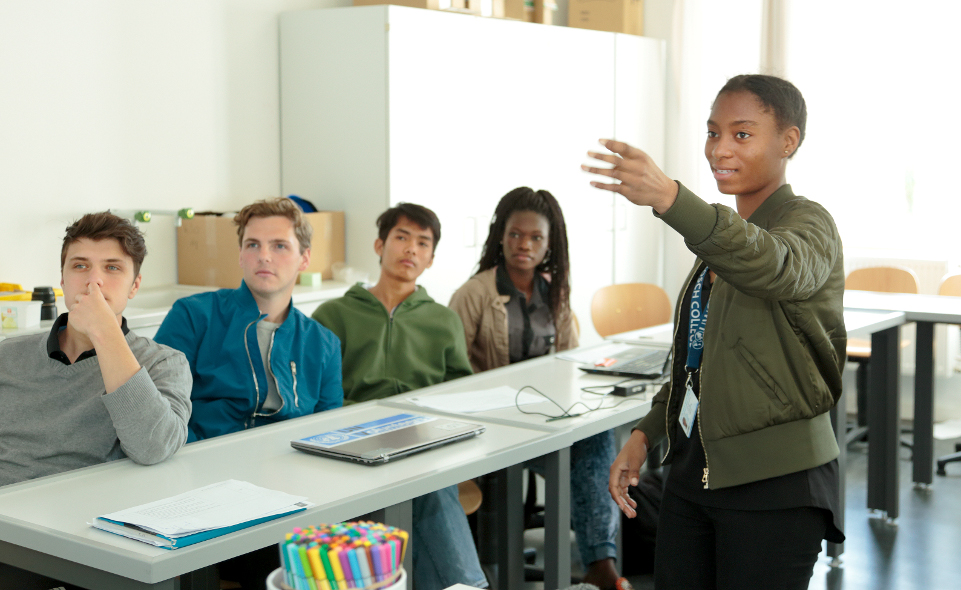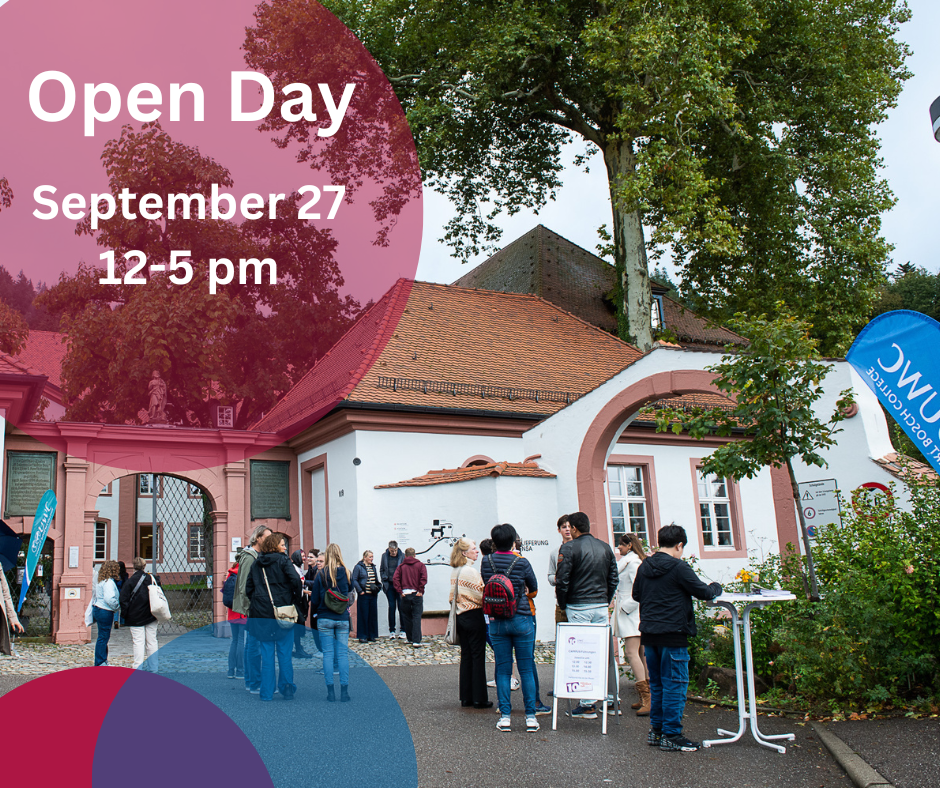Vielfalt im Klassenzimmer

Im Zentrum des UWC-Bildungsmodells, welches junge Menschen für Frieden und eine nachhaltige Zukunft sensibilisieren möchte, ist der Gedanke der ‚deliberate diversity‘, der bewusst gewählten Vielfalt. Indem wir SchülerInnen mit vielen verschiedenen Hintergründen zusammenbringen und einen Mikrokosmos kreieren, schaffen wir Raum für Austausch und interkulturelles Lernen. Wie können wir als Schule garantieren, dass diese Vielfalt auch im Klassenzimmer Platz findet? Wie schaffen wir es, die Erfahrungen der SchülerInnen mit in den Unterricht einzubinden? Wir haben mit Englischlehrer Emmett Zackheim über die Vorteile und Herausforderungen von ‚deliberate diversity‘ im Klassenzimmer gesprochen.
As a teacher, I try to understand my students’ experience in the classroom—their feelings of curiosity or boredom, confusion or confidence. I do this both by imagining myself in their position and by reading their reflections and feedback. These efforts have taught me that when working with groups of students as diverse as our classes at RBC, all the foundations of effective teaching become even more important—and their rationale becomes apparent.
When many of my students are English-language learners, it is obvious that I need to communicate clearly and to make information available in a variety of formats (e.g. in writing as well as in speech). When my students have arrived from a wide range of educational backgrounds, it is obvious that I need to regularly gauge their knowledge and skills, differentiate learning activities, and make my expectations explicit. Perhaps above all, when my students are living away from home and have sometimes had traumatic experiences at previous schools, it is obvious that I need to establish a supportive atmosphere in my classes.
Valuing diversity in the classroom
Beyond those basics, I see it as my responsibility to ensure that the breadth of backgrounds and viewpoints in the classroom contributes meaningfully to my students’ learning. Achieving that goal begins with the selection of course material. I teach primarily English and Theatre, two subjects that offer a lot of latitude when it comes to choosing particular topics and literary texts for study. My colleagues and I do our best to make choices that require students to consider new perspectives while also inviting them to draw connections to prior knowledge.
For example, in English A last fall, students investigated some of the relationships between social conflicts, cultural identity, and language. Working in small groups, they each explored a case study from Singapore, South Africa, Wales, Canada, or the US. In their discussions and presentations, many students shared relevant examples from their own home contexts, contributing to an even richer understanding of the topic—and of the experiences represented in the room. That project is also a good example of the value of collaboration and exchange. Making the classroom a social, interactive setting is another key to valuing the diversity in the room.
Linguistic diversity – obstacle or opportunity?
Of course, the diversity of our student body also introduces some challenges. For example, our students arrive at the college with wide variation in their confidence and proficiency in English. This can present real obstacles, especially in first-year classes. (We do offer two separate English courses: English B focuses on language acquisition while English A focuses on the analysis of literary and nonliterary texts.)
Especially as someone who is still in the process of learning German, I really admire all our students who have the courage to study in a language they did not grow up speaking. In planning my courses, I try to help students adapt gradually to their new linguistic environment. In English A, I begin the year with texts that are written in relatively accessible English, introducing more complex material over time. In Theatre, we start by exploring movement, gesture, and the body so students can develop performance skills without relying on language.
But the linguistic diversity of our student body is not only, nor even primarily, an obstacle. Rather, it creates opportunities that would not exist in many classrooms. When we study works in translation, students who can read the original text or who are familiar with the original context often share insights or nuances that we would otherwise miss. Theatre students can create multilingual performances where the use of different languages is central to the meaning and impact of the piece. Multilingual students can compare news coverage from different parts of the world, recognizing different forms of bias and sharing their findings with peers.
An essential part of our mission
Finally, my classes at RBC invariably help both my students and me to become more aware of our own cultural influences and backgrounds. To take a simple example, last spring, my English A students studied an essay that referred to Santa Claus, Christmas Eve, and the Holy Trinity. In my own hometown, nearly every teenager would understand those references and would take their knowledge for granted. In my RBC classroom, I knew that many students would need additional background information. Our ensuing conversations revealed differences in students’ religious knowledge, upbringings, and traditions. Situations like this help to show the cultural bounds of what we typically consider “common knowledge”.
All in all, then, the diversity of our classrooms plays a critical role in our educational mission. In addition to learning the course content in each subject, students learn both the value and the means of seeking out perspectives that are different from their own, of listening in an effort to understand, and of recognizing that their own norms and assumptions are not universal. Teachers learn these lessons too. In other words, thanks in large part to the diversity of our student body, classes at RBC help to develop in all of us—students and teachers alike— the habits of thinking and interaction that are essential to our goal of promoting intercultural understanding and achieving a peaceful, sustainable future.

